Who We Are
Firstly, we challenge the notion that *Indigenous people do not belong in urban centres. All lands in Canada, including urban areas, are the traditional ancestral territories of **First Nation, Inuit or Métis, despite the efforts to displace our people from them. In fact, “most cities are located on sites traditionally used by Indigenous peoples,” and we are reclaiming the spaces where cities have grown up around us.
The Lands We Call Home
We are Urban **First Nation, Inuit and Métis people living in small, medium and large communities, including rural, isolated and remote communities, which are: off-reserve; outside of their home community, community of origin or settlement; or outside of **Inuit Nunangat (**Inuit Homelands).
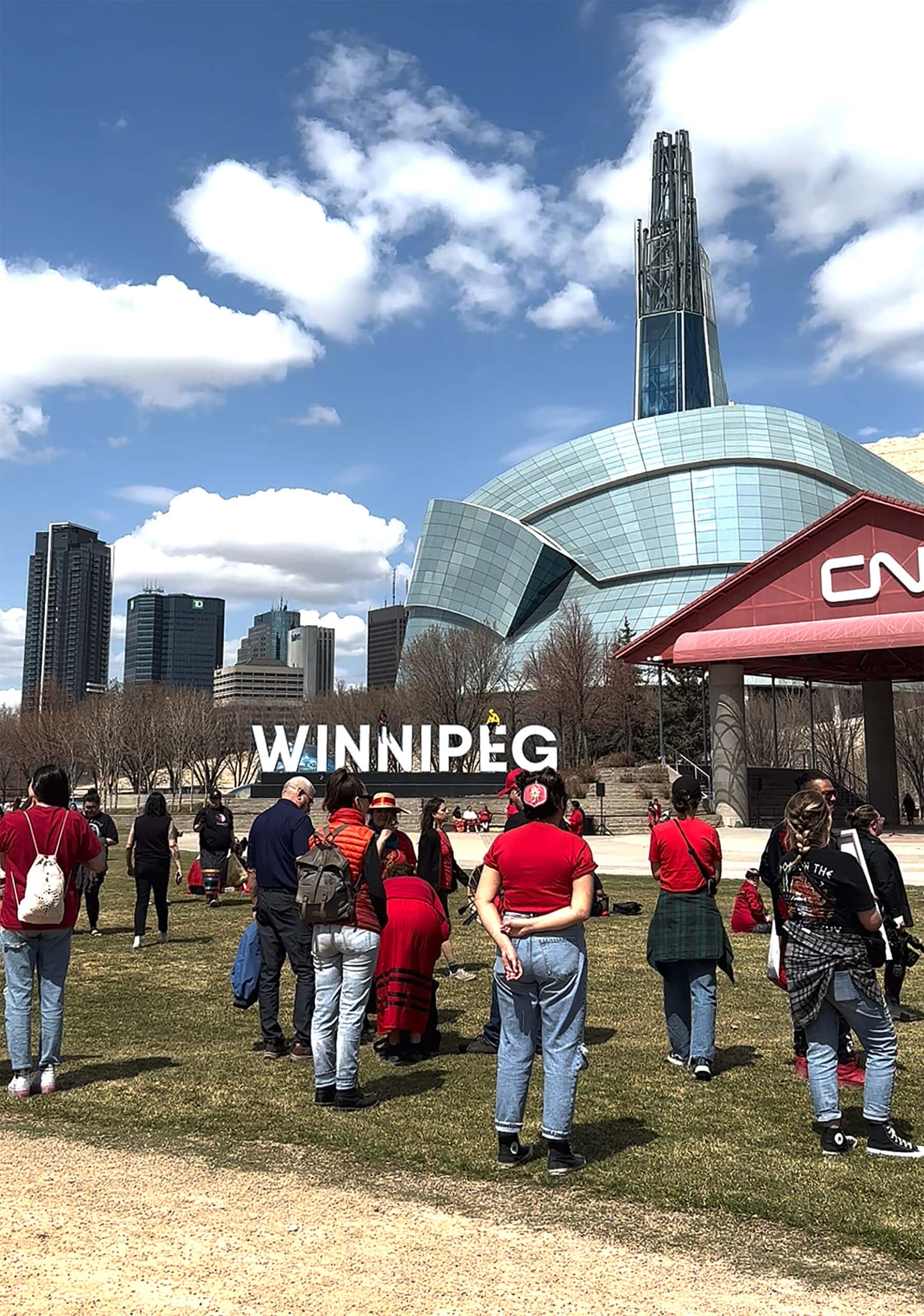
Members
We are Survivors, family members, frontline service providers, and experts with lived experience in the urban reality and violence who developed the urban chapter of the National Action Plan to Eliminate Violence Against *Indigenous Women, Girls and 2SLGBTQQIA+ people.
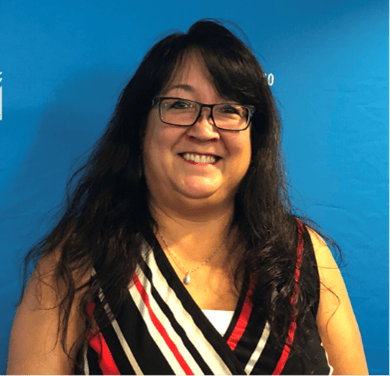
Diane Redsky
Chairperson
Diane Redsky
Chairperson
Diane Redsky is a proud mother of three children and a Kookum (grandmother). She is a member of Shoal Lake #40 First Nation in Treaty #3 territory and resides in Winnipeg, Manitoba, Canada. She spent most of her career leading Ma Mawi Wi Chi Itata Centre – translated from Ojibway “we all work together to help one another” the largest non-mandated, non-profit, urban Indigenous-led organization in Manitoba that serves urban Indigenous families in Winnipeg. In 2011-2014, she led Canadian Women’s Foundation National Task Force on Sex Trafficking of Women and Girls in Canada which made 34 recommendations to end sex trafficking. In 2018, Diane testified at the MMIWG2S+ National Inquiry and is currently Chairing the MMIWG2S+ Urban Working Group that launched their National Action Plan entitled: Urban Path to Reclaiming Power and Place, Regardless of Residency on June 3, 2021 and is currently working on an implementation plan. She is also part of the Manitoba MMIWG2S+ Implementation Committee made up of MMIWG2S+ family members, survivors and various community-based organizations throughout Manitoba. Dr. Diane Redsky is a nationally renowned, visionary thinker and community leader, she has long worked to address the myriad of issue’s facing Winnipeg’s urban Indigenous community in all areas, including health, justice, education, and social services.

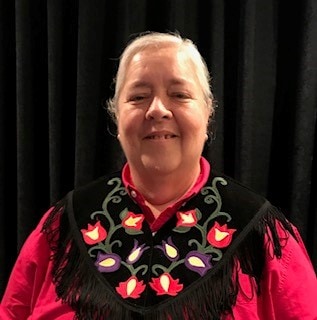
Sylvia Maracle
Member
Sylvia Maracle
Dr. Sylvia Maracle (Skonaganleh:ra) is a Wolf Clan member from Tyendinaga Mohawk Territory who has resided in Toronto for 50 years.
She was Executive Director of the Ontario Federation of Indigenous Friendship Centres (42 years), Legal Aid Ontario Founding Board Member (7 years), Canadian Centre for Addictions and Mental Health Board Member (3 years), Ontario Aboriginal Housing Services Founding Chair (25 years), Ontario Healing and Wellness Strategy Found Chair (20+ years), National Association of Indigenous Friendship Centres Executive Member (4 years), Native Child and Family Services President (10 years) and Native Women’s Resource Centre President (10 years).
Dr. Maracle was honoured with Doctor of Laws from Guelph, York, Trent and Queen’s Universities. She was appointed an Officer of the Order of Canada and received a Public Service Award from Indspire. She is appointed to the National Housing Council and chairs the National Committee of 2SLGBTQQIA+ People in response to the MMIWG National Action Plan.
Dr. Maracle also works in United Nations activities, World Urban Forums, and resource exchanges as a facilitator, trainer, speaker and Indigenous knowledge transfer.

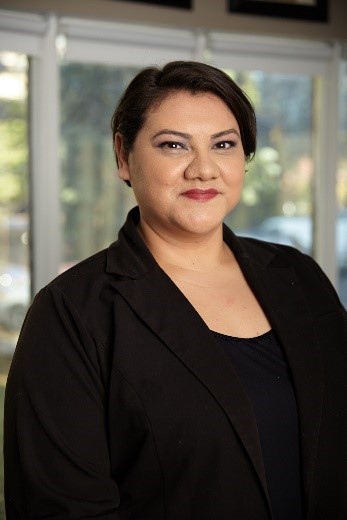
Jocelyn Formsma
Member
Jocelyn Formsma
Jocelyn Formsma is the Chief Executive Officer of the National Association of Friendship Centres (NAFC). Ms. Formsma is a member of the Moose Cree First Nation in Treaty #9 territory in Northern Ontario. She holds an Honours Bachelor of Social Sciences, a Juris Doctorate from the University of Ottawa and is called to the Bar of Ontario. Ms. Formsma has over 20 years of work and volunteer experience building strong relationships and advocacy with Indigenous peoples. She has worked in areas of social justice, media (radio and film), child welfare reform, youth engagement, and Indigenous children’s rights with and for numerous Indigenous and First Nations organizations. In addition, Ms. Formsma serves as a Board Member of the Indigenous Bar Association, Founder of the Morningstar Fund, Advisor to the Ontario Indigenous Youth Partnership Project, Board of Trustee member of the Canadian Museum of Human Rights, and has served as a long time member and past Board Member of the National Indian Child Welfare Association, and past Board Member and Chairperson of the Aboriginal Peoples Television Network. As Executive Director, Ms. Formsma brings her legal training and passion for Access to Justice to her work with Indigenous peoples in urban environments and the Friendship Centre Movement towards innovative, positive and effective systemic change for Indigenous peoples.

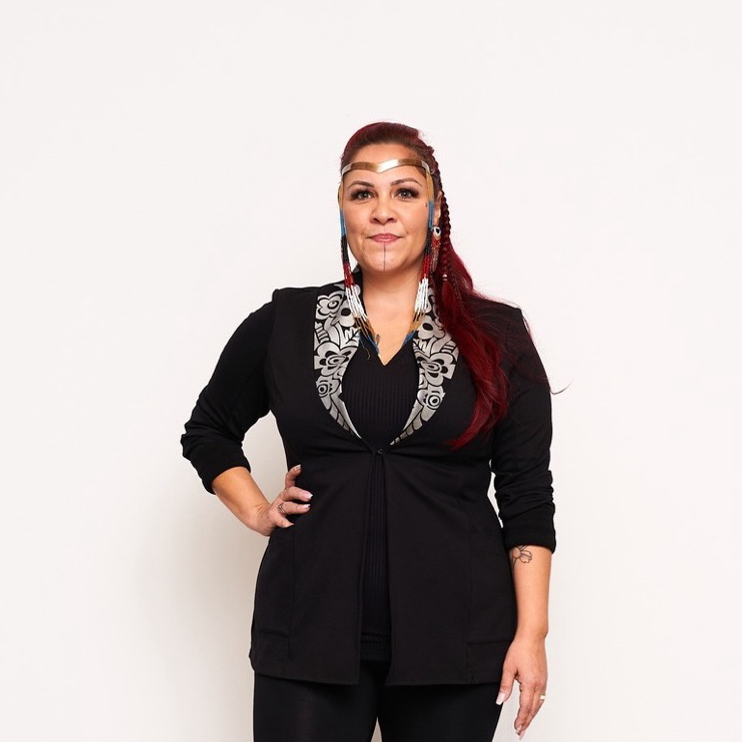
Nikki Komaksiutiksak
Member
Nikki Komaksiutiksak
Member
Nikki Komaksiutiksak is an Inuk woman from Chesterfield Inlet, Nunavut. Nikki is the founding member and chief executive officer to Tunngasugit Inc, Western Canada’s first Inuit Resource Centre located in Winnipeg, Manitoba. Though Winnipeg is now her home, Nikki has found the strength to preserve her “Inukness” living in the southern part of Canada. Nikki is an active member with the Inuit community in Winnipeg and uses her knowledge and understanding of the south to assist other Inuit moving to the big city. Nikki is an inspiration to the young and old everywhere, and truly demonstrates a passion for her cultural identity. Nikki is an experienced throat singer, teacher of Inuit history and culture, and a heartfelt musical performer. Nikki has also been selected by Pauktuutit Inuit Women of Canada as the 2023 Inuk Woman of the Year. Nikki has participated in several international events, representing Manitoba and Inuit at such prestigious venues as the 2015 Indigenous Music Awards in Winnipeg. She has recorded music with local Canadian talent over the past 28 years. Nikki has been featured in many events around the world, always sharing her identity and teaching about her Canadian Inuit Culture. Nikki has taught at the University of Manitoba instructing Inuit Culture & Societies, and various schools throughout Manitoba to teach and showcase Inuit culture to both students and staff. The Inuit of Canada are an integral part of Canadian history and culture, but sadly are often excluded, overlooked, and forgotten. As a mother and survivor of various intergenerational trauma and a family member affected by her sister’s murder at the mere age of 17 while in the care of Child and Family Services, Nikki believes it is important to learn, educate and understand Inuit culture, history, and language. Nikki truly believes that it is critical that Inuit culture is remembered, recognized, and celebrated throughout all of Canada.

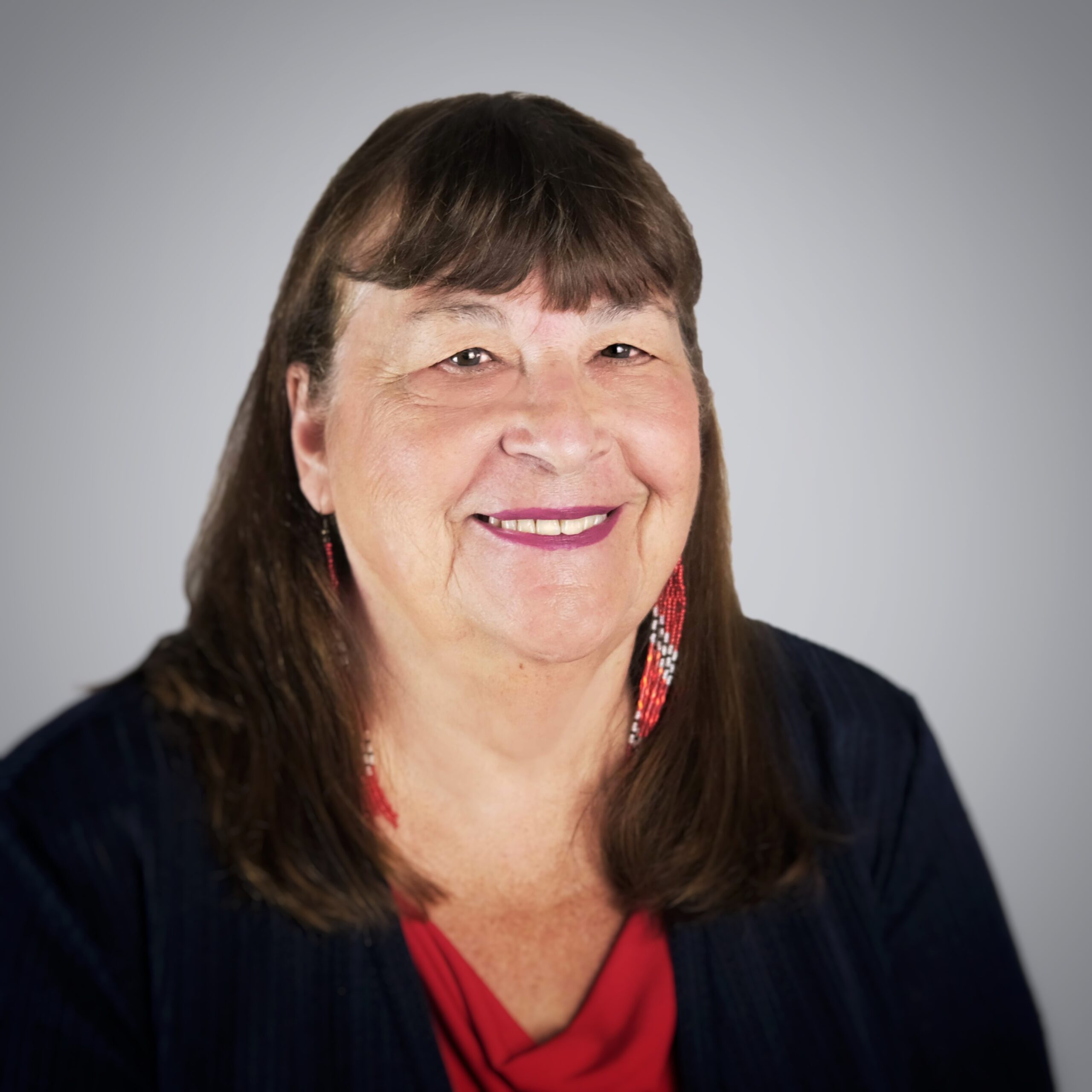
Odelle Pike
Member
Odelle Pike
Odelle Pike is one of nineteen children who grew up in a strong traditional Mi’kmaw family in St. George’s, NL. A mother, wife, sister, auntie and mentor to countless people in her community and throughout the province. Odelle spends every minute of every day working on behalf of the community and volunteering her time for the things like cultural revitalization and sustainability, mental health and advocating on behalf of the women and families impacted by the MMIWG2S+ crisis.
Odelle is the current President of the Newfoundland Aboriginal Women’s Network, the founder of the Bay St. George Cultural Circle, (present day People of the Dawn Indigenous Friendship Centre), Director on the Ulnooweg Development Corporation, and a respected Mi’kmaw Elder who is often called on to conduct healing circles, sweat lodges and lead ceremony that allows people and communities to use traditional ways as a means to deal with situations that are impacting them in a negative way.
Odelle is an instrumental advocate and voice for Indigenous women and members of the 2SLGBTQQIA+ community facing gender-based violence and works tirelessly in support of creating meaningful change and building the capacity of women and 2SLGBTQQIA+ communities through economic development and entrepreneurship.
Over the years, Odelle has been honored to be recognized and awarded the Order of Newfoundland and Labrador, the Governor General Sovereign Award for Indigenous Leadership, The Ulnooweg Lifetime Achievement Award, NLOWE Visionary Award, Western Newfoundland Volunteer of the year Award and Skate Canada National Volunteer of the Year Award and most recent was recognized by Memorial University by receiving and Honorary Degree in Law.
Following her retirement in 2011, Odelle has taken a more active role in serving her community and has become a full-time volunteer, reporting to the office of NAWN, working full time hours in the capacity of community leader and change maker. She plays an instrumental role as one of six Elder advisors to the board of Empowering Indigenous Women for Stronger Communities, and is an active member of the Provincial Indigenous Women’s Steering Committee, as well as Elder on the Mi’kmaw Cultural Foundation.
Seeing the positive outcomes achieved by the people she has supported; she considers her greatest reward.
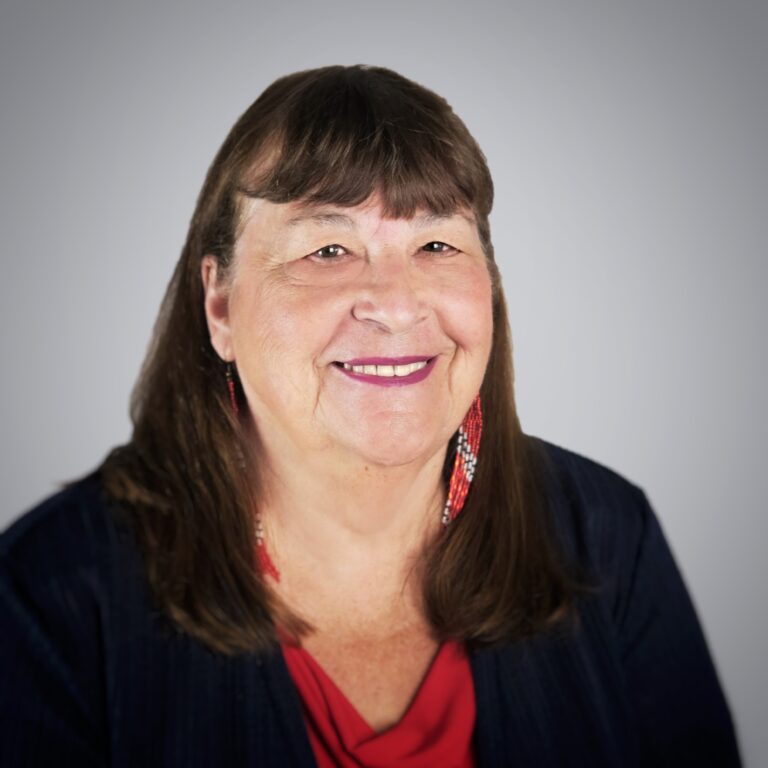
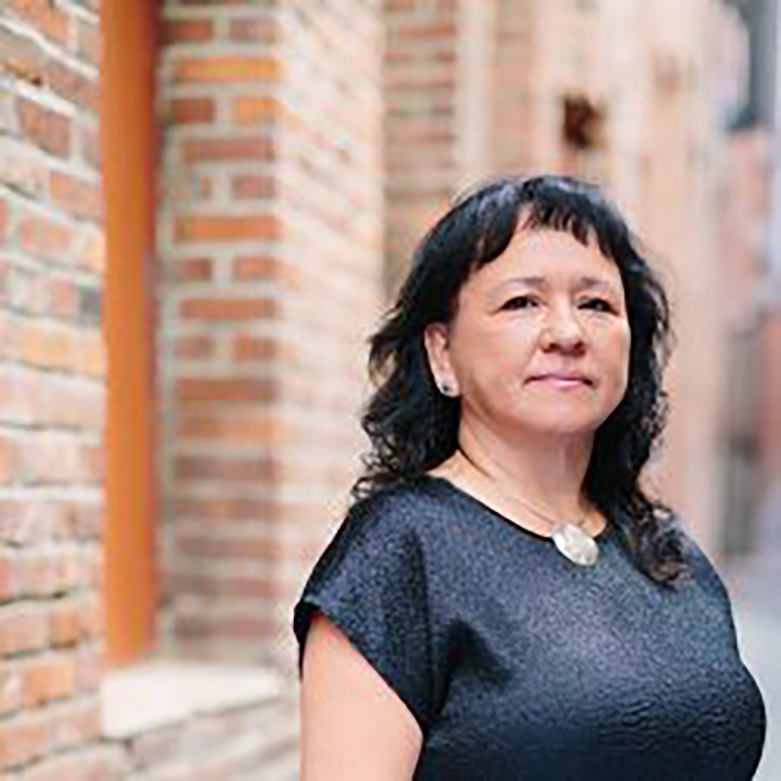
Fran Hunt-Jinnouchi
Member
Fran Hunt-Jinnouchi
Member
With 25+ years in senior management, Fran Hunt-Jinnouchi has led as the Executive Director of the Aboriginal Coalition to End Homelessness Society (ACEH) since 2016, overseeing its development from inception to a place of prominence in BC. This is in part because of the culturally supportive housing model she created called the Dual Model of Housing Care (DMHC). The DMHC aspires to Housing First Principles and includes culturally supportive housing, decolonized harm reduction which is deeply rooted in land-based healing. The ACEH purpose is to strengthen indigeneity, transmit indigenous knowledge and skills, re-connection people to homelands and ancestry with a commitment to support family reunification.
Subsequently, Fran has built the organization from 1.5 staff to over 100 in a short period of time and now further operates culturally supportive housing for youth, peri-natal polysubstance use housing for moms and babies, a Family Reunification House, an Indigenous Alcohol Harm Reduction Residence Program, an Indigenous Community Justice program, as well as a Culturally Aligned Integrated Support Program (CAIS) which has 7-streams of wrap-around supports and rental supplements (in Victoria and now expanding to Port Hardy and Port Alberni). Fran is also currently overseeing the development of a Wellness House (Treatment/Recovery program) which will align Indigenous and Western approaches to health and wellness along with education and job skills training.
Additionally, Fran is on numerous boards and committees regionally and nationally. She is a sought-after presenter on community and capacity development, Indigenous post secondary education, entrepreneurialism, strategic planning and team development. She is a former elected Chief for Quatsino First Nation, was an elected School Trustee in Port Hardy, School District #85, and owned and operated a boat and kayak rental business in Port Hardy for 7 years.
Further to this, Fran was the inaugural Director of the Office of Indigenous Affairs at the University of Victoria, and as an entrepreneur, owned and operated two restaurants in Victoria. She is a proud Kwakwaka’wakw woman, Kwakiutl and Quatsino/Gusgimukw, and is a mother of five grown children, a grandmother to ten and great-grandmother of two.
Education:
Bachelor in Social Work, from UVic, where she graduated with distinction.
Master of Adult Education, from St. Francis Xavier University, Nova Scotia, which focused on program and community development.
Completed course work for a Doctor of Philosophy/Educational Psychology & Leadership

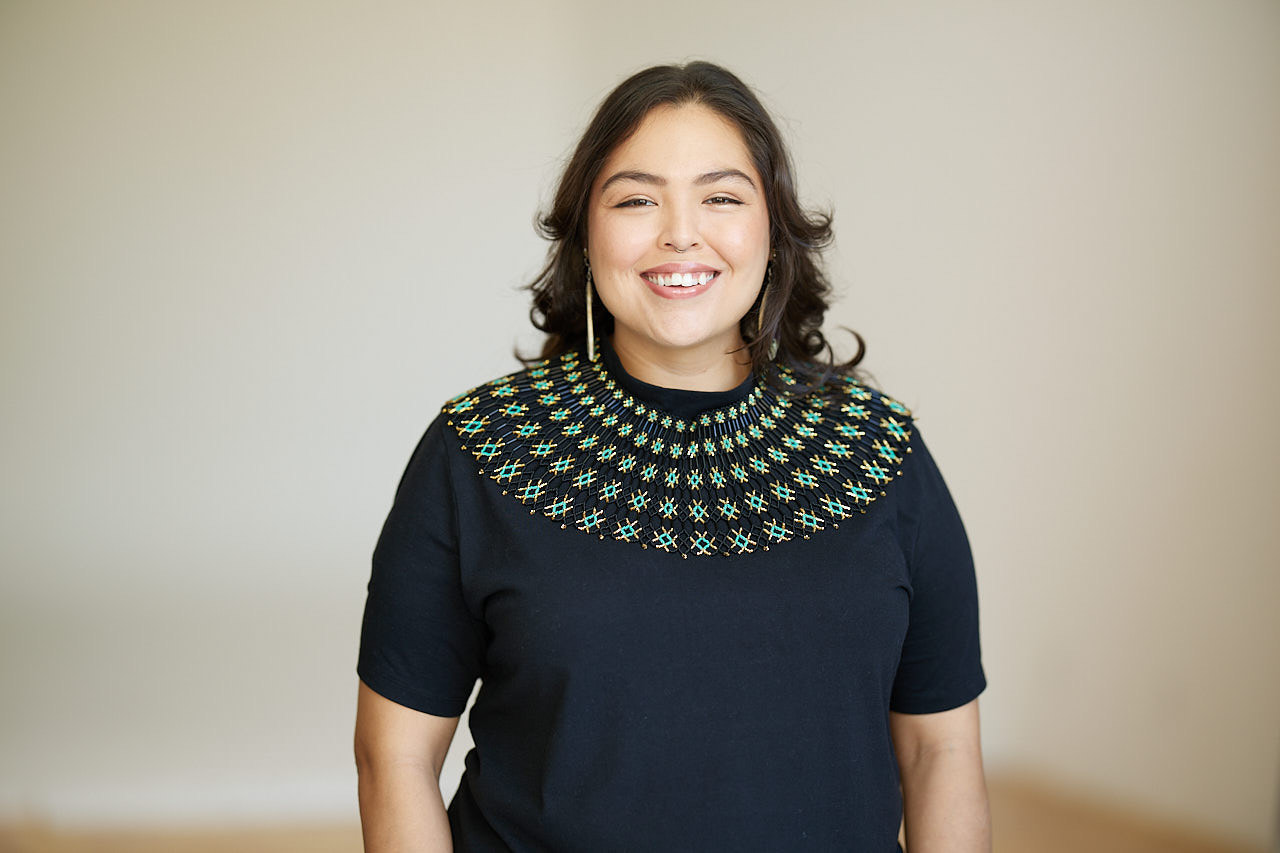
Janis Qavavauq Bibeau
Member
Janis Qavavauq Bibeau
Member
Janis is an Inuk Two-Spirit advocate, researcher, and community organizer based in Montreal. With lived experience as a family member of Missing and Murdered Indigenous Women, she brings a deep personal commitment to addressing violence against Indigenous women, girls, and 2SLGBTQQIA+ people. Janis has coordinated research and community projects focused on MMIWG2S+ initiatives, collaborated with Indigenous organizations, police, and government bodies, and currently works to advance trust-based philanthropy and systemic reform. She is also pursuing a degree in social work to further support healing and advocacy within Indigenous communities.

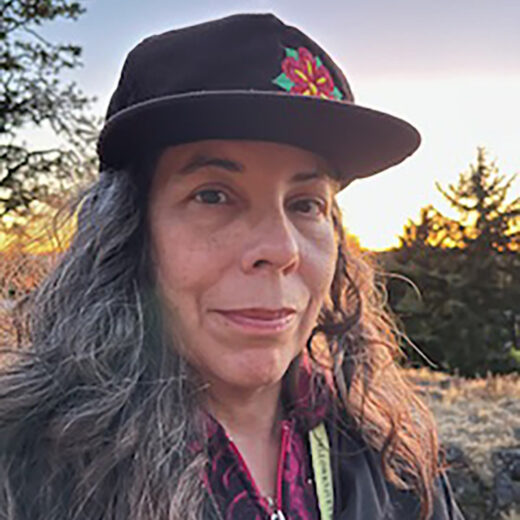
Cindy Allen
Member
Cindy Allen
Member
Cindy Allen is a northern Indigenous woman with Weledeh, Yellowknives Dene, Tlicho and settler ancestry. Cindy is a mother, auntie, sister and grandmother. She is a Treaty 8 member of the Yellowknives Dene First Nation from Northwest Territories (NWT) and is a Wolf Clan member. Cindy has a master’s degree in Canadian and Native Studies and a certificate in conflict resolution. In 2014, Cindy completed a Juris Doctor from the Allard School of Law at the University of British Columbia as an Exceptional Graduate. Cindy’s legal studies focused on Aboriginal and Indigenous law. For many years, Cindy worked as a Negotiator, Implementation Official and as a Consultation Advisor on treaties, land claims, self-government, implementation, and resource development in British Columbia, the NWT and the Yukon. Cindy was a cultural heritage interpreter for Parks Canada leading guided 5-10-15 km hikes in Kluane National Park and Reserve in the Yukon. Cindy has also been an Indigenous Coordinator dealing with public service delivery complaints from Indigenous peoples in BC. Currently, she is a Language Helper with the Victoria Native Friendship Centre, Indigenous Culture and Language (ICL) team. As the Language Helper, Cindy provides culturally safe trauma informed care to Indigenous Elders and community members accessing ICL’s programs.
Besides her professional experience, Cindy is a strong advocate and a MMIWG family member with excellent communication and interpersonal skills, seeking the truth for MMIWG in northern Canada after the death of her granny in 2009, Marie-Adele Doctor. In May 2017, Cindy presented to the National Inquiry into MMIWG, in Whitehorse, Yukon, on the first day, about the death of her granny. In January 2018, Cindy was an Indigenous Dene law expert presenter at the National Inquiry into MMIWG held in Yellowknife, NWT. Cindy Allen’s Dene Woman’s perspective on the traditional Dene story of “Yamozha and His Beaver Wife” is highlighted and quoted in Reclaiming Power and Place: The Final Report of the National Inquiry into MMIWG in the section on Indigenous Rights. Cindy has attended and given many presentations, advocated for, and peacefully marched at Red Dress and Sisters in Spirit events held in BC, the Yukon, and the NWT. Recently, she gave the closing remarks at the Women Are Sacred Walk, held in Esquimalt, BC on May 5, 2025.
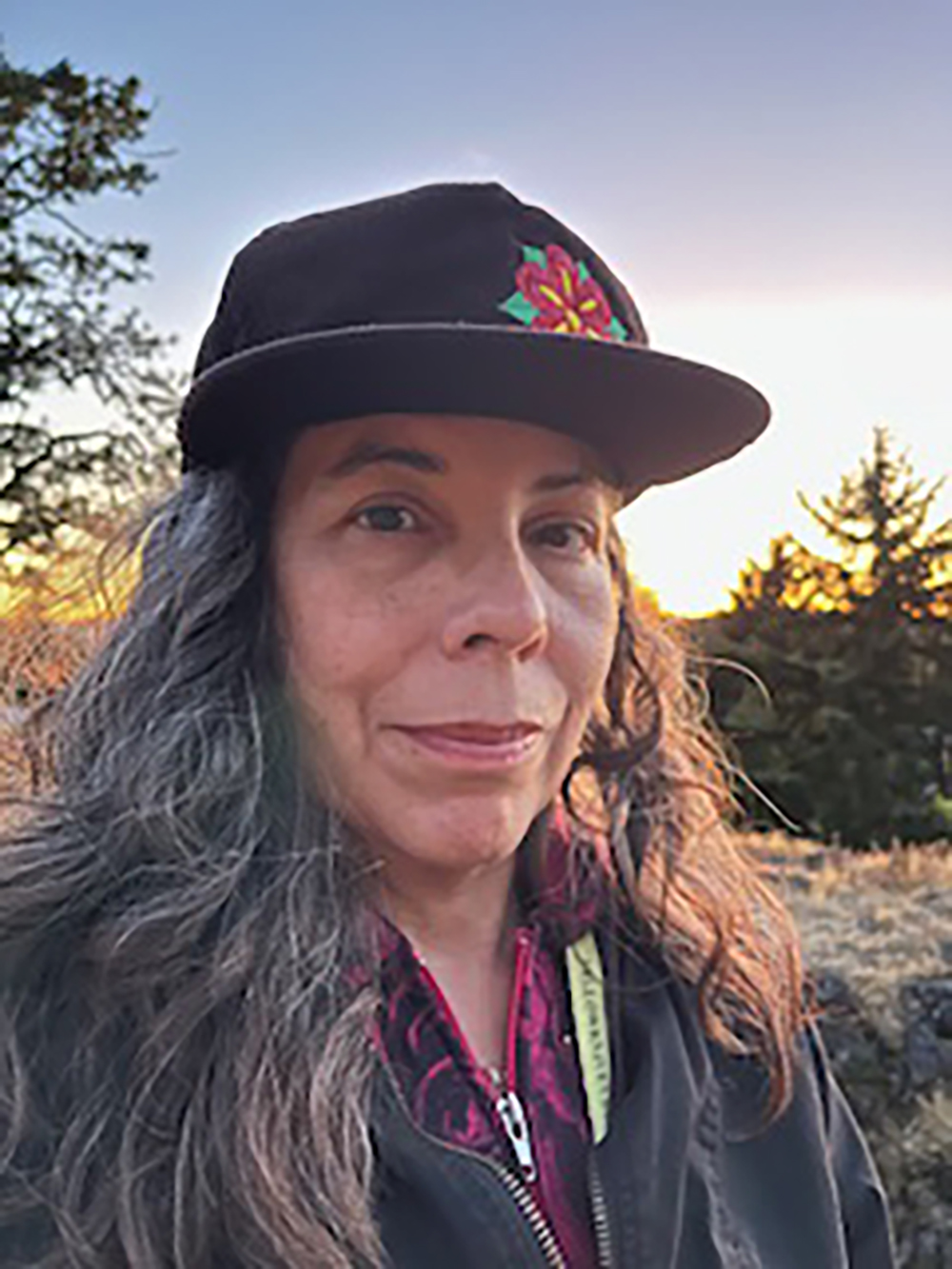
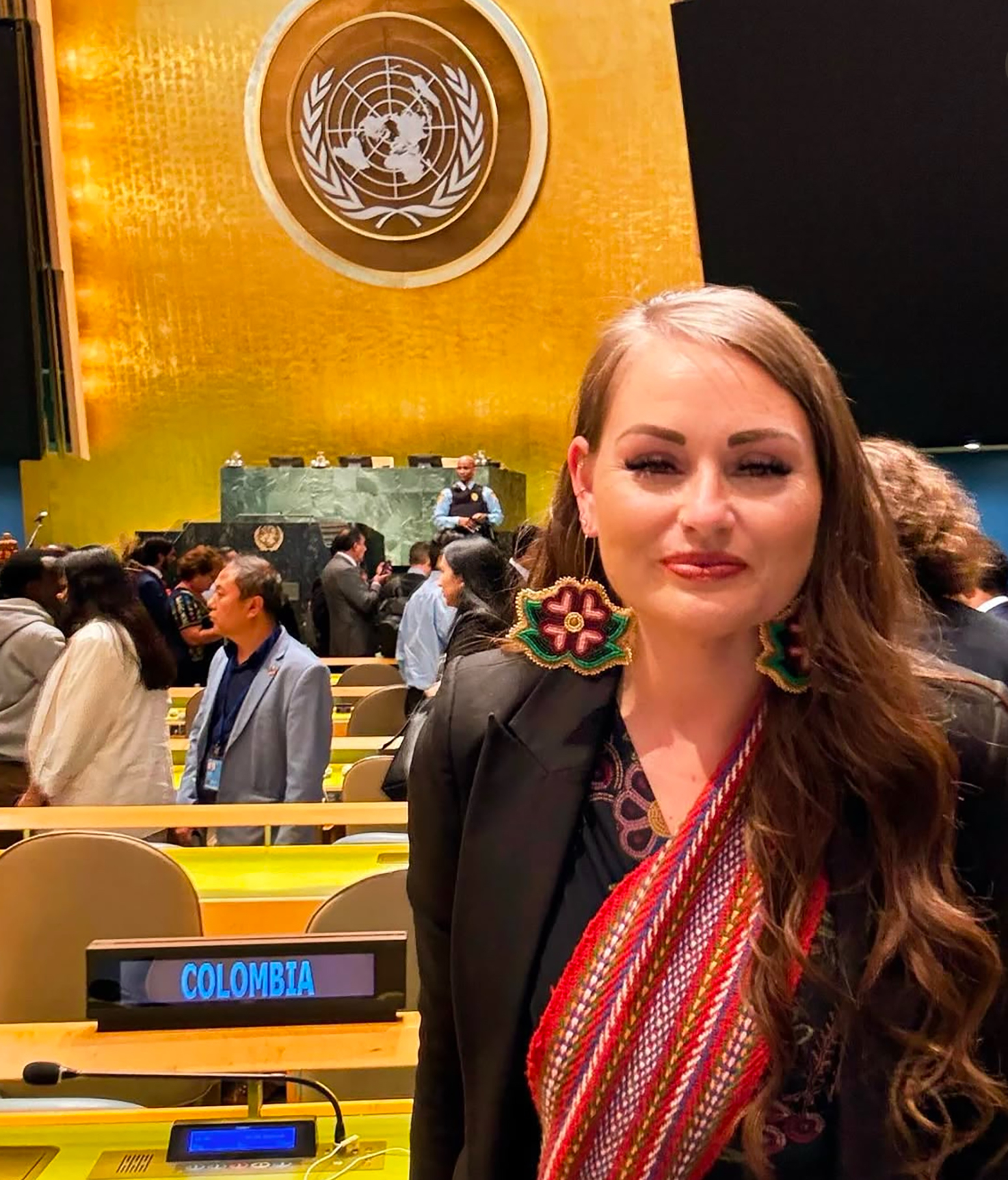
Gabrielle Fayant
Member
Gabrielle Fayant
Member
Gabrielle Fayant is an off-Settlement Metis woman who’s family is from Fishing Lake Métis Settlement, AB. Gabrielle is an award-winning woman for her work in her community, for her dedication to supporting young people, and for amplifying grassroots efforts. Gabrielle is passionate about cultural resurgence, revitalization and restitution for all Indigenous peoples. Gabrielle has been working in community for 10+ years to help improve the lives of Indigenous peoples and has a diploma in Indigenous Healing and Wellness Counselling. Gabrielle is a helper and co-founder of a non-profit Indigenous youth organization called Assembly of Seven Generation (A7G) and a co-manager for a social enterprise retail store called Adaawewigamig.

Staff
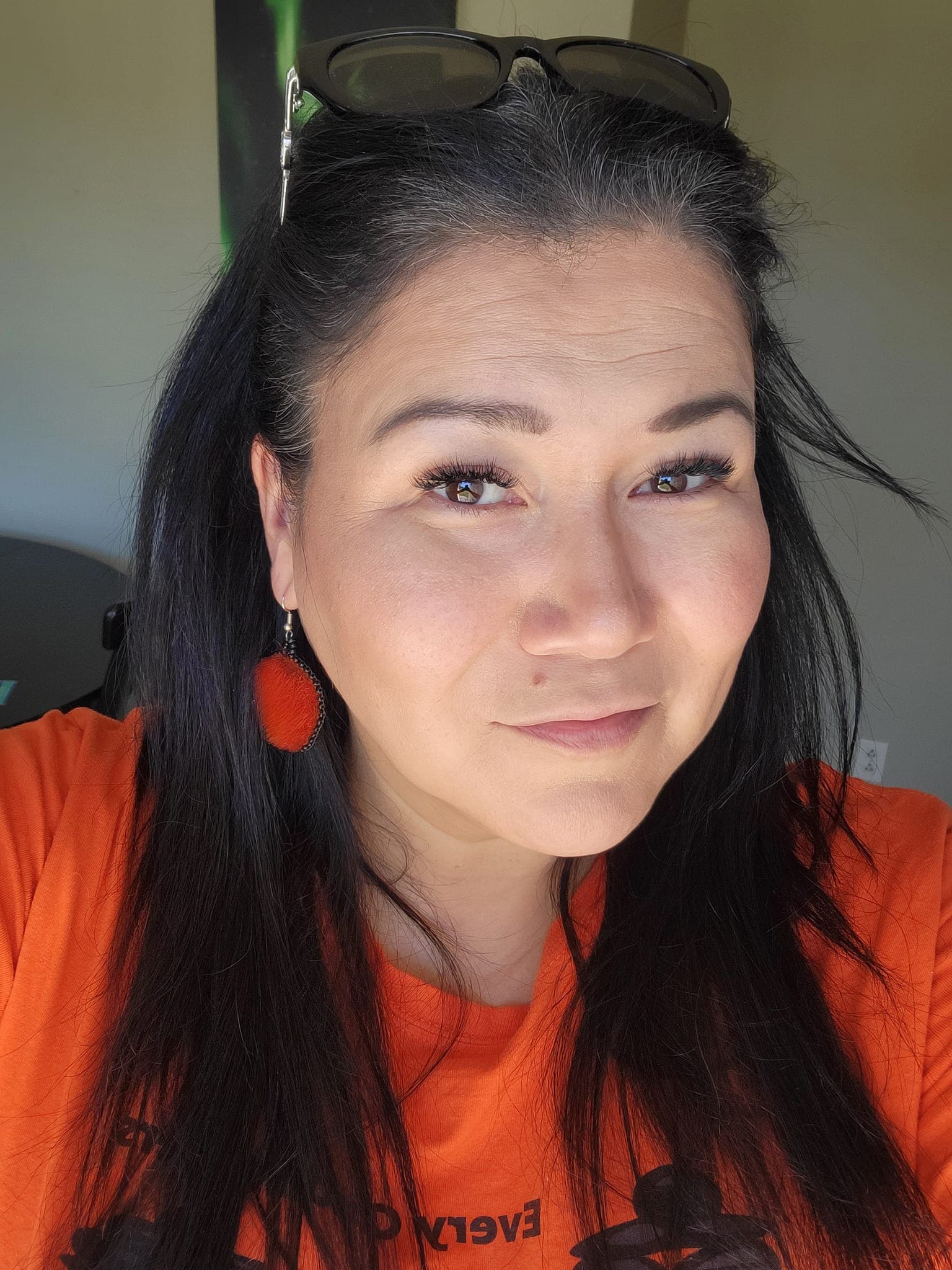
Amanda Kilabuk
Director
Amanda Kilabuk
Director
Originally from Arviat, Nunavut, Amanda Kilabuk has served her life focussing, in both professional and voluntary capacity, on community-led initiatives that empower Inuit. Through her leadership in several agencies in the North, she has helped to create numerous innovative grassroots programming have promote skills and education, child development and research for the Inuit community.
She spent her time in senior management roles at Tungasuvvingat Inuit as Manager of Employment, Director of Education and Employment and then Executive Director. She was instrumental in leading TI through the COVID pandemic, ensuring that there was access to food security, PPE and vaccines to staff and community members. From 2020 to 2023, she served TI as the Executive Director.
Over the past few years, Amanda has shifted her focus to address the myriad of issues facing Inuit women and girls. She played an active role in the MMIWG2S+ Urban Working Group and the Inuit Working Group which developed a National Action Plan and Implementation Plan.
She is currently the Murdered Indigenous Women, Girls, and Two Spirit (MMIWG2S+) Urban Indigenous Action Group Director and works as a part-time consultant for Sivummut Solutions.

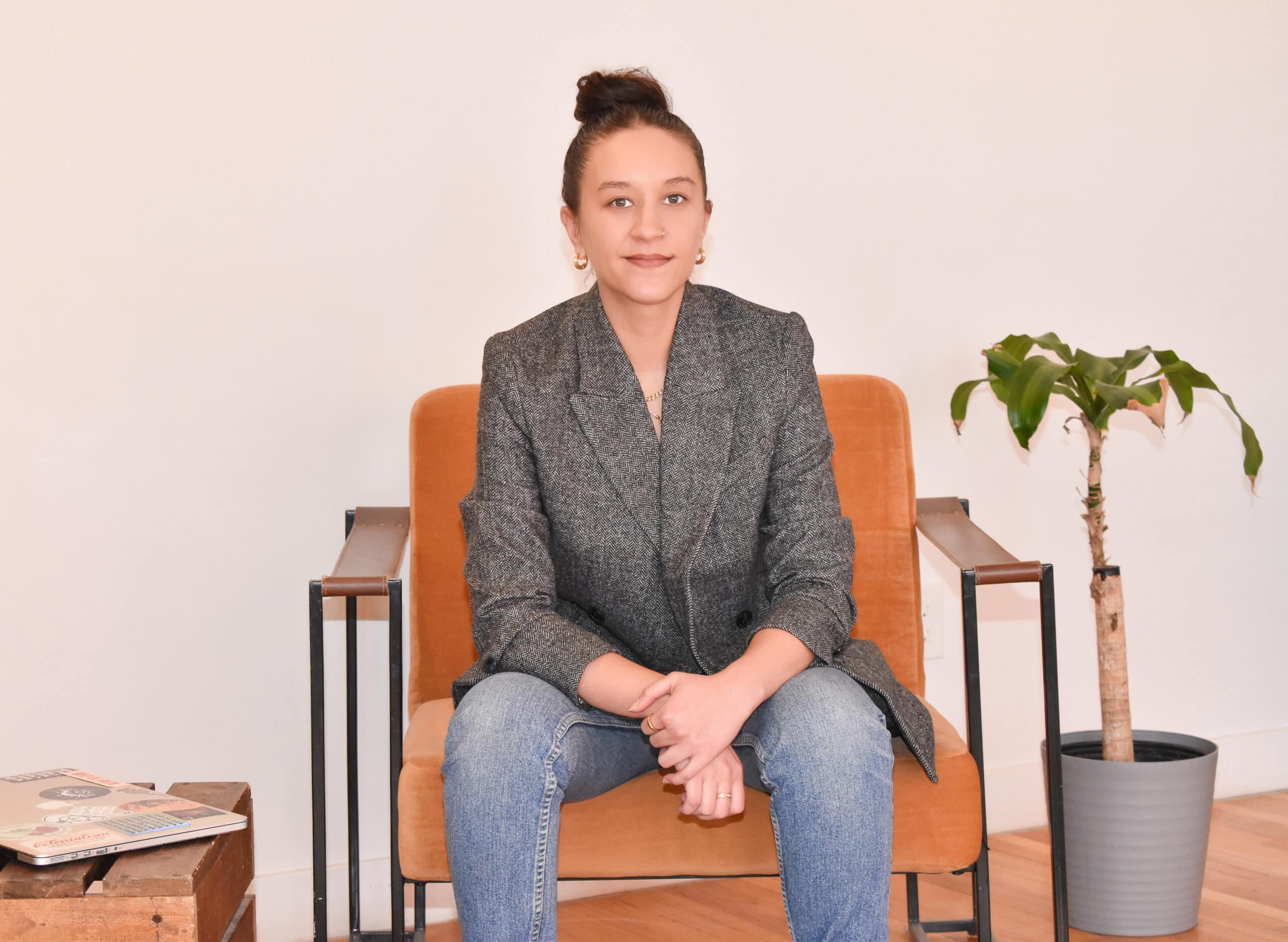
Brianne Ste. Marie Lacroix
Communications Manager
Brianne Ste. Marie Lacroix
Brianne Ste Marie Lacroix (she/her) is currently the Murdered Indigenous Women, Girls, and Two Spirit (MMIWG2S+) Urban Indigenous Action Group’s Communications Manager. Originally from the small town of Ile Des Chenes, outside of Winnipeg in Treaty 1 Territory with mixed Red River Métis, French settler, and Scottish ancestry. She has an educational background in photojournalism. She has always focused her work on topics of intersectional feminism, 2SLGBTQQIA+ rights, and anti-racism. Advocating for a safer more inclusive world is something that Brianne strives to do through her work in the action group and as an artist. Her diverse creative skillset of photography, writing, graphic design, and social media management are helpful in effectively sharing the work of the MMIWG2S+ Urban Indigenous Action Group.
